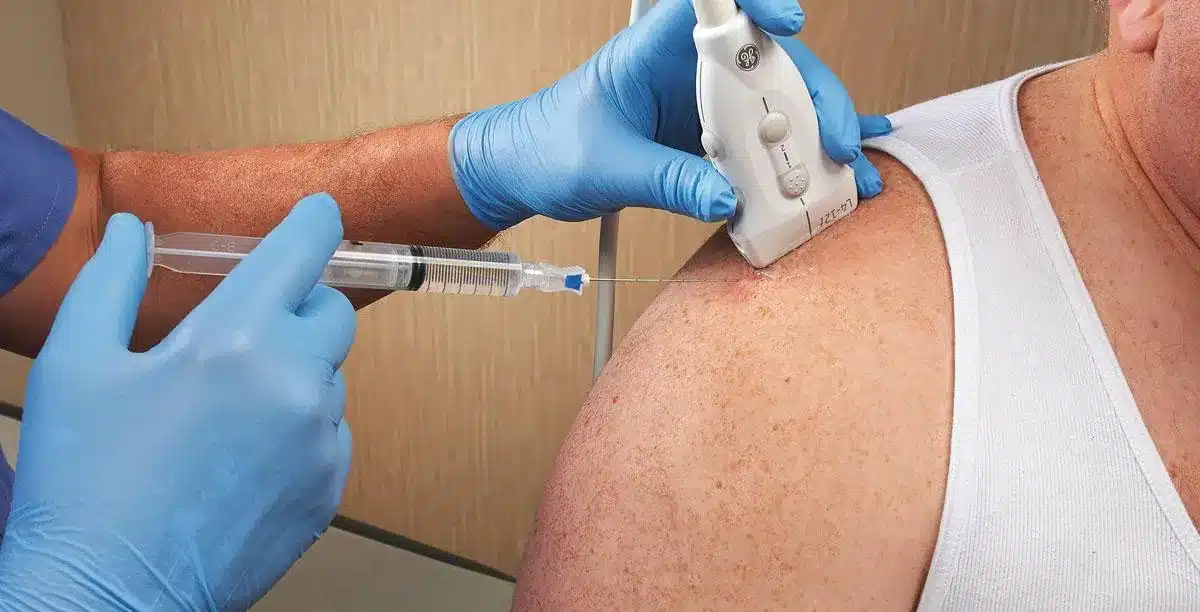Shoulder pain is one reason people seek medical treatment. Known as the glenohumeral joint, it is the most mobile joint of the body. It is surrounded by muscles, tendons, and ligaments. The shoulder is a common site for injections to manage pain from injury or trauma.
There are two main types of pain, acute and chronic. Each type impacts personal lifestyle in a variety of ways because it limits function of the shoulder and arm.
Acute pain resulting from a trauma or injury causes:
- lost work time
- hinders ability to do daily activities
- affects quality of life
- resolves within three months.
Chronic pain is long-term continuous, or episodic, severe pain that can lead to:
- poor sleep patterns
- financial difficulty
- withdrawal from socialization
- depression, irritability, emotional stress
- impacts ability to do daily activities
- lasts more than three months.
According to All Star Pain Management and Regenerative Medicine, located in Annapolis, Maryland, under the direction of Dr. Glen Burnie, shoulder injections are effective for pain management and can be done in the doctor’s office as an outpatient procedure.
Bony landmarks and ultrasound are used to determine the proper place for the shoulder injection so the anesthetic or corticosteroid is injected into the joint space and so the injection causes less pain. The ultrasound provides a live picture off the shoulder and allows the doctor to see the needle placement and see the condition of the bone, muscles, tendons, and ligaments to determine if these shoulder structures are damaged.

There are two types of injections including analgesics and corticosteroids. The analgesic works right away, whereas; the corticosteroid takes time to produce its desired effect.
Most people have immediate relief with an anesthetic and ongoing relief for two to six months. Corticosteroids take 20 – 48 hours before relief begins but, patients have relief for six to twelve months.
Additional pain management may include oral medicines to control intermittent or breakthrough pain and inflammation. Acetaminophen manages pain while NSAIDs, like ibuprofen, control inflammation. Aspirin may be used for mild to moderate pain but should be avoided if you have asthma or allergy and can cause ulcers or stomach problems. Opioids like hydrocodone, morphine, and codeine are used for severe and chronic pain. Dual action drugs like Ultram can be used to treat chronic or acute pain.
Individuals with certain health problems are advised to avoid this type of treatment because it can have detrimental effects on them.
These health conditions include:
- pregnancy
- the presence of systemic infection
- presence of a skin infection
- allergy to contrast dye
- blood clotting problems.
Overall, shoulder injections are effective for most people and provide long-term relief to facilitate healing and control pain. New techniques, like using ultrasound to guide the doctor’s hands, also provides a picture of the shoulders condition. Ultrasound allows for diagnosis and treatment to be done at the same time.
